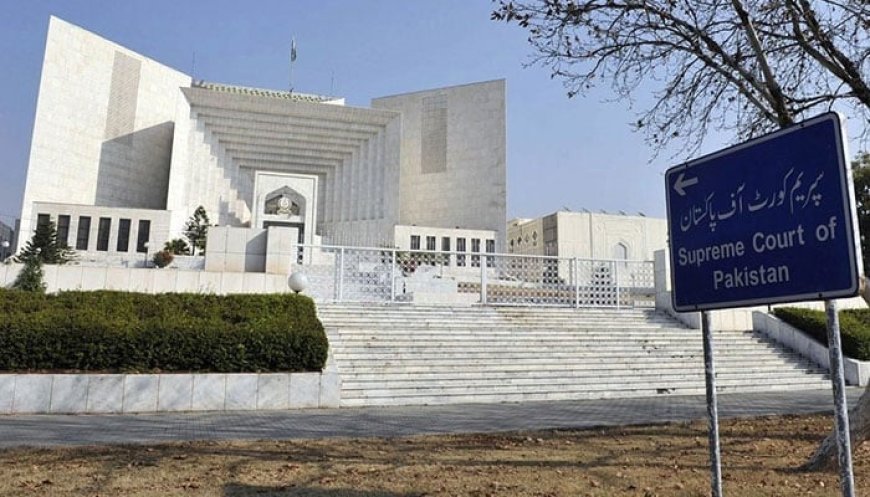Amendment made to Elections Act cannot undo judgment on reserved seats: SC

1. ECP "bound to implement judgment" passed by Supreme Court without seeking any further clarification
**Supreme Court Reaffirms Elections Act Amendments Cannot Override Reserved Seats Judgment**
**ISLAMABAD:** The Supreme Court of Pakistan has reiterated that recent amendments to the Elections Act do not apply retroactively and cannot overturn the court’s earlier ruling regarding reserved seats for the Pakistan Tehreek-e-Insaf (PTI).
This clarification follows separate applications filed by the Election Commission of Pakistan (ECP) and PTI in September, seeking clarification on the court’s July 12 order. The order had declared PTI eligible for reserved seats allocated to women and minorities, despite ongoing political turbulence surrounding the party.
In July, the Supreme Court ruled that the embattled PTI should receive its reserved seats in parliament. However, the government amended sections 66 and 104 of the Election Act, 2017, and introduced Section 104-A with retroactive effect. This prompted the ECP to request further guidance from the court.
The apex court dismissed the ECP's request, labeling it "misconceived" and reaffirmed that the election body must implement the original judgment without delay.
**September 23 Verdict Declares PTI a Parliamentary Party**
In a detailed judgment issued on September 23, the court confirmed that PTI remains a parliamentary party, noting that 39 out of 80 members of the National Assembly (MNAs) retained affiliation with PTI, while the remaining 41 were given the option to re-submit their political affiliations. Despite this clarification, the ECP has yet to allot reserved seats to PTI.
The ECP argued that the court’s July order was issued under legal provisions that have since been amended, and the new amendments, including Section 104-A, apply retroactively. PTI countered, asserting that the court’s ruling was based on constitutional provisions that cannot be overridden by subsequent legislative changes.
“The relief granted by the court aimed to uphold the electorate’s right to proportional representation through political parties, as outlined in Article 51(6)(d) and (e) and Article 106(3)(c) of the Constitution. Amendments to the Election Act made after our ruling have no impact on the judgment, which must be implemented fully,” the court emphasized.
**‘Dilatory Tactics’ by the ECP**
In a prior statement on September 14, the court criticized the ECP for what it called "attempts to create confusion" around the July 12 ruling. The judges accused the ECP of adopting “dilatory tactics” to obstruct the implementation of the judgment, declaring that the clarification sought by the ECP was a deliberate attempt to delay compliance.
The Supreme Court’s four-page clarification noted that the ECP had already acknowledged PTI's status by serving notices through Barrister Gohar Ali Khan. It instructed the commission to follow through on the reserved seats allocation.
**Government Defends Amendments and Questions Implementation**
Following the September 23 verdict, Law Minister Azam Nazeer Tarar defended the government’s amendments to the Election Act. He argued that independents who join a political party after elections must do so within three days of their names being published in the official Gazette, as required by Articles 51 and 106 of the Constitution.
Tarar further claimed that independents who had already affiliated with the Sunni Ittehad Council could not switch to another party, including PTI. He emphasized that parliament holds the authority to amend laws and that the changes made to the Election Act represent the current legal framework.
Despite the amendments, the Supreme Court stressed in its 70-page judgment that PTI remains eligible for the reserved seats quota. The ruling clarified that the absence of an electoral symbol does not undermine PTI’s constitutional right to participate in elections and receive its share of reserved seats.
The verdict underscores the judiciary’s stance that legislative changes cannot be applied retroactively to circumvent court judgments, reaffirming the independence of Pakistan's judiciary and the importance of constitutional adherence.


















































